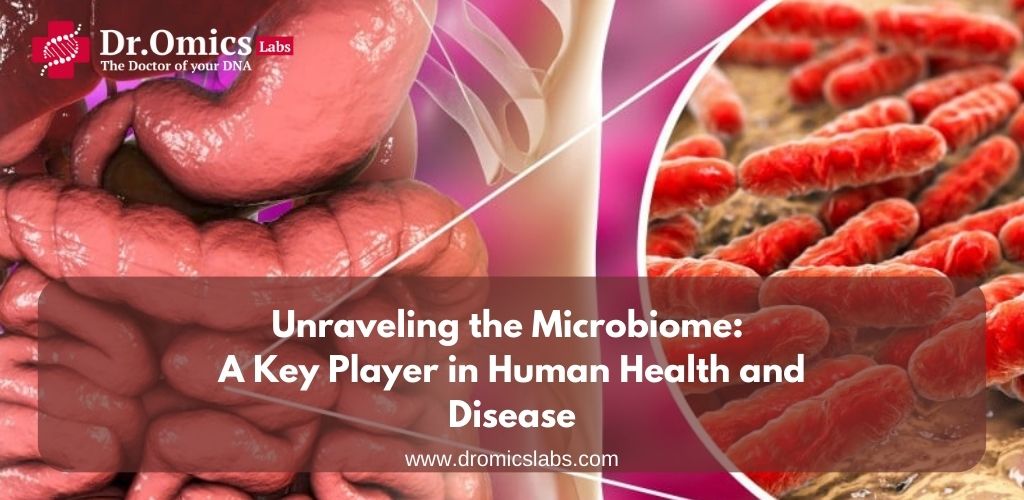Nutrigenomics, a field that has seen significant advancements in the past decade, focuses on the interaction between nutrition and our genes. Over the years, several breakthroughs have been made, leading to a better understanding of how specific foods and dietary components can impact gene expression, as well as the body’s response to nutrients. Some key discoveries include the use of nutrigenomics to quickly screen for new nutrients with similar benefits, predict responses to novel nutrients or foods, and confirm the biological value of nutritional products in a shorter time frame than traditional methods. This has paved the way for personalised nutrition and the potential for tailored treatments based on an individual’s genetic makeup. The study of nutrigenomics holds promise for the future of personalised nutrition, offering insights into how our genes influence the body’s response to food and paving the way for customised dietary recommendations and treatments. As research in this field continues to advance, the potential for leveraging nutrigenomics to optimise health and well-being is becoming increasingly evident.
What are some of the most promising Nutrigenomics discoveries :
Nutrigenomics is a rapidly evolving field that has seen several promising discoveries in recent years. Some of the most notable breakthroughs include:
1. Precision Nutrition (Nutrigenomic):
Nutrigenomics has the potential to bring precision nutrition to reality by identifying the specific dietary needs of individuals based on their genetic makeup[1].
2. Screening for New Nutrients (Nutrigenomic):
Nutrigenomics can be used to quickly screen for new nutrients with similar benefits to existing ones, making it easier to identify novel dietary components that can improve health.
3. Predicting Responses to Novel Nutrients (Nutrigenomic):
Nutrigenomics can predict how an individual’s body will respond to novel nutrients or foods, allowing for personalised dietary recommendations.
4. Confirming the Biological Value of Nutritional Products (Nutrigenomic):
Nutrigenomics can confirm the biological value of nutritional products in a shorter time frame than traditional methods, making it easier to evaluate the efficacy of dietary supplements and functional foods.
5. Large-Scale GWAS of Food Liking (Nutrigenomic):
A recent study used large-scale genome-wide association studies (GWAS) to identify genetic determinants of food liking, which could help tailor dietary recommendations to an individual’s taste preferences.
6. EconomasE (Nutrigenomic):
EconomasE is an economical alternative to Vitamin E, and is considered the first fundamental nutrigenomics innovation. It is an example of how nutrigenomics can be used to identify novel dietary components that can improve health.
7. Mitigating Myopathies in Meat (Nutrigenomic):
Nutrigenomics has been used to mitigate myopathies in meat, which can improve the quality of meat products and reduce waste.
8. Truly Amaize-ing (Nutrigenomic):
Amaize® from Alltech is a product with an elusive mode of action that was discovered using nutrigenomics. Nutrigenomics allowed scientists to precisely understand the true function of Amaize, making it possible to issue specific recommendations to farmers of how and how much to incorporate.
As research in nutrigenomics continues to advance, the potential for leveraging this field to optimise health and well-being is becoming increasingly evident.
Challenges in implementing nutrigenomics in clinical settings :
The implementation of nutrigenomics in clinical settings faces several challenges, including the need to assemble a comprehensive catalogue of nutrient-gene interactions, the high cost of nutrigenomic methods, and the limited integration of genetic and metabolomic measures in nutrition epidemiology studies[1]. Additionally, there are ethical and legal implications, as well as the need for healthcare professionals to have sufficient awareness and training in nutrigenomics counselling[5]. Furthermore, the transition from a healthy condition to a disease phenotype involves a complex interplay of genes, environment, and metabolites, making it challenging to develop personalised dietary recommendations for specific health outcomes[4]. Despite these challenges, nutrigenomics holds the potential to revolutionise personalised nutrition and contribute to more effective dietary interventions for individuals based on their genetic makeup.
How can nutrigenomics be used to personalise nutrition
Nutrigenomics can be used to personalise nutrition by understanding how an individual’s genetic makeup influences their response to food. This allows for the development of tailored dietary recommendations based on an individual’s genetic profile. By identifying specific nutrient-gene interactions, nutrigenomics can help in the formulation of personalised diets that take into account an individual’s unique genetic predispositions and metabolic pathways[1][3]. However, the implementation of nutrigenomics in clinical settings faces challenges such as the need for a comprehensive catalogue of nutrient-gene interactions, the high cost of nutrigenomic methods, and the limited integration of genetic and metabolomic measures in nutrition epidemiology studies[4]. Despite these challenges, nutrigenomics holds the potential to revolutionise personalised nutrition and contribute to more effective dietary interventions for individuals based on their genetic makeup.
Citations:
[1] https://www.linkedin.com/pulse/10-years-dedication-hard-work-have-really-paid-off-aidan-connolly
[2] https://www.alltech.com/features-blog/advancing-science-top-10-breakthroughs-10-years-nutrigenomics
[3] https://www.mygenefood.com/blog/what-is-nutrigenomics/
[4] https://www.rootsanalysis.com/blog/nutrigenomics-the-future-of-personalized-nutrition/
[5] https://www.bodyspec.com/blog/post/unlocking_the_potential_of_nutrigenomics
[6] https://www.frontiersin.org/articles/10.3389/fgene.2022.997266/full
[7] https://www.nature.com/subjects/nutrigenomics
[8] https://pubmed.ncbi.nlm.nih.gov/29783447/
[9] https://www.medscape.com/viewarticle/583041




